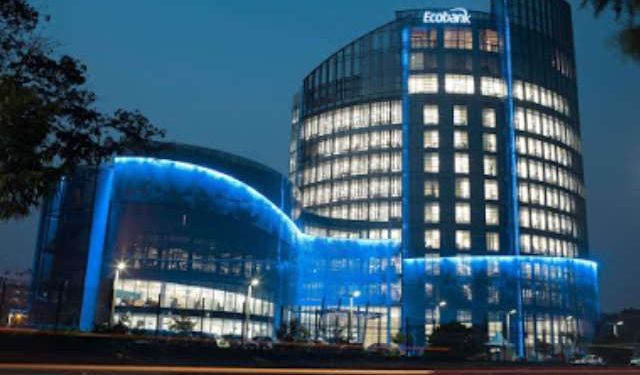Ecobank Ghana’s Total Assets Near GHS 50bn in Q3 2025 Amid Stronger Liquidity and Lending Growth
A review of Ecobank Ghana’s financial results for the third quarter of 2025 shows that the bank’s total assets rose by GHS 968 million between Q3 2024 and Q3 2025, driven largely by growth in cash holdings and customer lending.
Per the financial statements, total assets increased from GHS 48.9 billion in Q3 2024 to GHS 49.8 billion (circa GHS 50 billion) as of Q3 2025. The growth was primarily supported by higher cash and cash equivalents, which stood at GHS 19.8 billion, and loans and advances to customers, which rose to GHS 12.1 billion by the end of the review period.
The bank’s non-trading assets also recorded an improvement, rising from GHS 9.4 billion to GHS 10.2 billion year-on-year.
On the liabilities side, Ecobank Ghana reported GHS 43.1 billion in total liabilities, up slightly from GHS 42.3 billion in Q3 2024. The growth in liabilities was mainly attributable to higher customer deposits, which climbed to GHS 34.5 billion in Q3 2025 from GHS 33.6 billion in the prior year.
The bank’s shareholders’ equity — the difference between total assets and liabilities — stood at GHS 6.7 billion, reflecting a steady capital position.
In terms of profitability, total comprehensive income improved to GHS 1.4 billion at end-Q3 2025, compared to GHS 1.3 billion recorded during the same period last year, signalling consistent earnings growth.
Ecobank Ghana’s Capital Adequacy Ratio (CAR), a key measure of financial soundness, stood at 15.18 percent as of end-Q3 2025 — comfortably above the Bank of Ghana’s regulatory threshold of 13 percent. This marks a notable improvement from the 13.03 percent CAR reported in Q3 2024, underscoring the bank’s strengthened capital buffer.
However, asset quality weakened over the period, with the non-performing loans (NPL) ratio rising to 20.96 percent from 17.34 percent in Q3 2024. The bank’s NPL ratio remains marginally above the industry average of 20.8 percent, highlighting the continued pressure of credit risk in the banking sector.
Ecobank Ghana’s performance in the third quarter reflects a steady expansion in its balance sheet, improved capital adequacy, and sustained profitability — albeit amid rising asset quality concerns within the broader industry.








